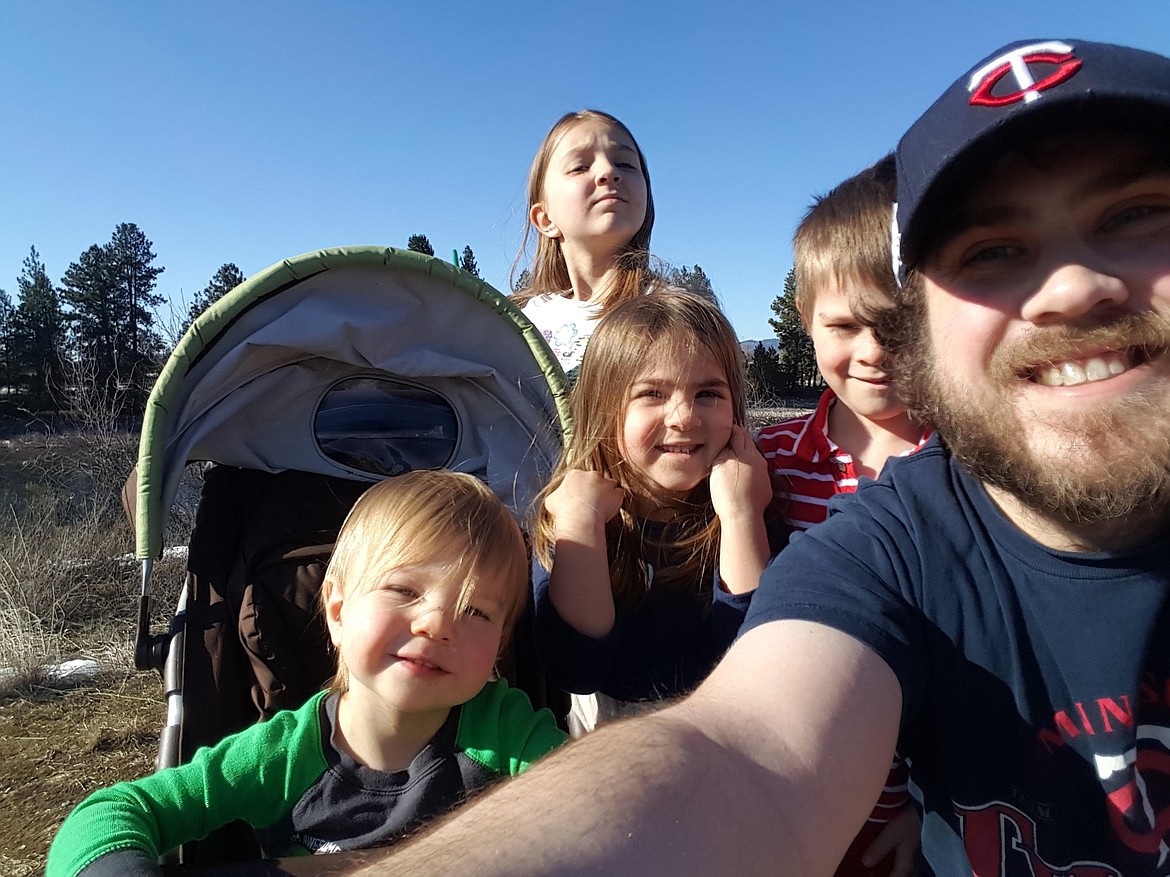The stay-at-home dad: Triggering memories complicate difficult conversations
I know fire drills shouldn’t be “fun,” but that’s exactly what I remember about them from my school age days.
In elementary school, the commotion of it all often made them feel like a bonus recess. In middle and high school, fire drills delivered occasional-if-brief respite from a particularly boring lecture.
For my kids, fire drills are still a thing, of course, but they also do one I never did — the lockdown drill. I knew this was a thing long before my oldest daughter reached school age, and yet it shook me when she came home from kindergarten and described it for the first time. She talked about it in her adorable “kindergarten” voice, and she seemed unfazed by why they practiced it.
“It’s to keep us safe if a bad person comes into the school,” she said.
At that point in her life, she didn’t need a larger explanation about it. As our kids get older, however, the real world creeps in, and parents are eventually faced with tougher conversations.
I was in high school when Columbine happened, and while obviously alarming, it seemed like most of us at the time saw it as a rare, isolated incident. We had “door locking” drills, but never to the extent of what kids now practice in lockdown drills. Unfortunately, the prevalence of these shootings have become something a bit more than isolated.
Last year, my oldest daughter learned more about 9/11 in fourth grade. In previous years, she was aware something bad had happened, but this time her teacher shared more details. It scared her, and it evolved into a larger family discussion that included school shootings. I felt totally unequipped to handle the conversation, though my wife and I tried our best to reassure her of all the things we do to keep her and other kids safe.
I bring all this up because of a new movie on HBO Max called, “The Fallout,” which addresses the emotional trauma of a school shooting from the viewpoint of three teenage survivors. The movie does not show the shooting; and the three main characters are unharmed while hiding in a bathroom stall as they hear horrific things happening outside.
I actually saw this movie last year, at the online edition of the South by Southwest Film Festival. It’s a thoughtful, well-made drama that explores how these events can lead to long-term trauma, even for those who don’t technically “see anything.”
Despite my appreciation for the filmmaking, I couldn’t bring myself to watch the movie again when it came to HBO Max last week. That early bathroom scene triggers a memory from about 15 years ago, when my wife and I were in the New York, New York Casino in Las Vegas when a shooter opened fire on the casino floor. When we heard shots and saw people running, we ran into the ladies restroom and locked ourselves in a stall alongside another woman. We waited there for several minutes until someone finally came in to tell us the threat had been handled.
Long story short, a man fired multiple times on the casino floor at random, striking four, including a minor, before being tackled and detained. Thankfully, all the victims lived.
I still have moments where loud “popping” noises trigger this memory. What was astonishing to me was how little attention this event received even on the local Las Vegas news telecasts at the time. Nobody died, so, shrug, I guess.
Obviously, we’ve had far more terrible, awful mass shootings since then. No easy solutions exist, and I don’t bring this up to spawn any kind of political conversation. It’s just that, like what gets depicted in “The Fallout,” it can be easy for some to try and normalize these abnormal incidents and expect everyone to meet a certain timeline for emotional recovery. In reality, trauma response is varied and specific to the person.
Even if the vast majority of students never go through a real incident, lockdown drills are now treated like a normal part of school life. It’s not normal, but what’s the alternative? Any kind of deeper conversation (like the one I eventually had with my daughter) comes with legitimate and justified fear, and, for me, a personal experience that prevents me from approaching the topic with much objectivity.
Anyway, I’ll leave this unfocused column on two maybe-not-helpful takeaways — 1) Watch “The Fallout” for what I think is an examination of trauma that more people need to understand and 2) It should be OK for parents to acknowledge the struggle of these conversations.
Back to the usual silliness in the next column, I promise.
• • •
Tyler Wilson is a freelance writer and stay-at-home dad to four kids, ages 4-10. He is tired. He can be reached at twilson@cdapress.com.

